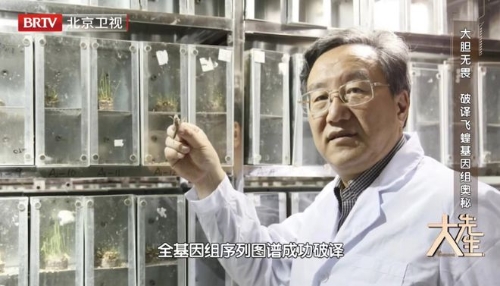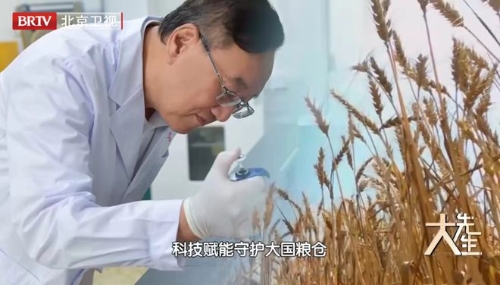Throughout history, locust plagues have posed significant threats to agricultural production, devastating crops in China and around the world. Factors such as climate change and shifts in agricultural practices allowed locust populations to rebound, creating new threats to local agriculture and ecosystems.
In 1999, Kang Le, an expert in ecological genomics and a distinguished academician at Chinese Academy of Sciences, and his team investigated a catastrophic locust invasion in Inner Mongolia, where swarms darkened the skies, leaving behind a landscape of devastation. Many herders stood in despair before their once-verdant pastures, and Kang’s vehicle struggled through the sea of crushed locusts beneath its wheels.
Recognizing that locust management requires research, Kang committed himself to understanding the deeper elements of locust behavior. He believed that the next generation of scientists needed to adopt cutting-edge research methodologies to innovate in locust studies. In September of that year, a key milestone occurred when China was granted official participation in the Human Genome Project, which opened unprecedented opportunities for exploring the mysteries of life sciences. Seizing this moment, Kang initiated a groundbreaking project focusing on the locust genome.
Kang's pursuit of knowledge led him into the intricate world of locust genetics, where he encountered the challenge of deciphering a genome that is 2.5 times larger than that of humans and over 30 times the size of the fruit fly. Despite facing skepticism, especially regarding the relationship between genes and the locusts' complex behaviors, Kang pressed on.
By January 14, 2014, Kang's relentless dedication bore fruit when his team, alongside institutions like Shenzhen BGI and the Chinese Academy of Sciences, successfully mapped the complete genome of the locust. This monumental achievement not only opened a new avenue in ecological genomics but also offered invaluable insights for biomedical models, paving the way for future exploration in life sciences.
Kang’s research journey hasn’t stopped there; he remains captivated by the questions that locusts present. For example, earlier studies proposed that the dark coloration of gregarious locusts was due to melanin. However, after a series of unsuccessful attempts to replicate this result, Kang recalled a lesson from his art teacher about color mixing. He theorized that a combination of pigments could explain the transformation of locust colors, leading him to discover that by manipulating the β-carotene binding protein, locusts could change color according to their group dynamics. This breakthrough has reshaped understanding in locust research, providing essential insights into color regulation among insects.
Moreover, Kang tackled the fundamental question of what drives locusts to swarm. While many believed that a chemical compound called phenylacetonitrile attracted them, Kang’s innovative experiments ultimately disproved this notion. He discovered that a compound named 4-vinylphenol, despite its low concentration, was crucial in facilitating locust aggregation. This finding not only revolutionized the understanding of locust behavior but also introduced novel strategies for managing locust populations through synthetic compounds and gene editing.
Today, Kang is also exploring bio-pesticides that are safe for humans and the environment. Unlike traditional chemical insecticides, these biological alternatives demonstrate high efficacy against pests with minimal ecological impact.
Kang Le’s dedication to science is a testament to his fierce passion and relentless pursuit of knowledge. His work in locust research is pivotal not just for understanding these pests but also for ensuring food security and ecological balance globally. His team’s extraordinary contributions exemplify courage in innovation and unwavering commitment to advancing scientific inquiry. As they illuminate unexplored territories within their field, their legacy continues to inspire future generations of scientists to pursue knowledge boldly and make significant contributions to humanity's well-being.



